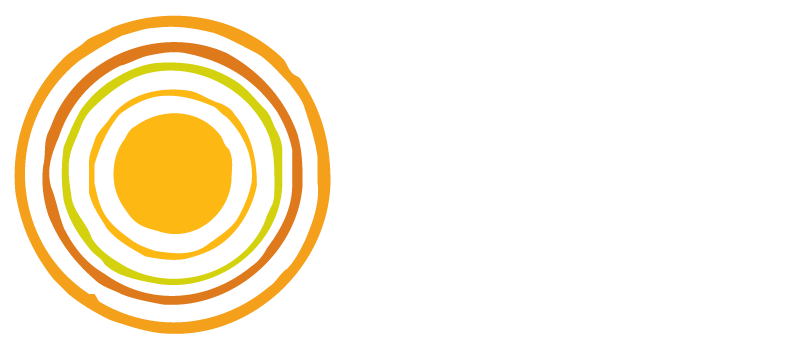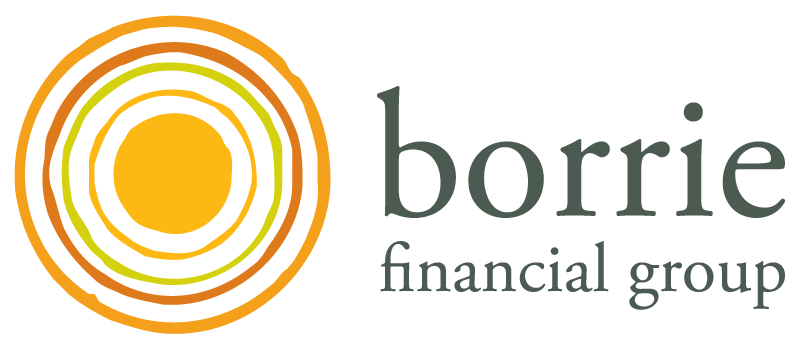
03 Jun Real Estate Personal Tax Obligations
Borrie Financial Group Limited have compiled this little Tax Tip Sheet around some topical issues to get you started. This is by no means exhaustive, advice is of a generalised nature and not intended to substitute specific advice around your own unique circumstances.
Before undertaking a career in Real Estate it may be beneficial to meet with an accountant to discuss your specific business and personal affairs, particularly with other trading activities and property ownership and the potential tax impact that may occur once you have started trading.
Contractor or Employee
In most instances this is outlined clearly within your contract, however there are some scenarios in which for tax purposes you could be considered an employee. This is most likely to occur in informal agreements in which an agreement is entered with another agent, or potentially at the very start of your real estate career. This is a fundamental consideration for tax purposes and if you have any doubt we recommend you contact us for specific advice.
The information contained within this tip sheet is based on the assumption that you are a contractor, and that you are trading as a sole trader for tax purposes.
IRD Information
The IRD has released specific information for Real Estate Agents – this can be found on the IRD website. IR830 We’re here to help you get your expense claims right.
GST Registration
If you exceed, or expect to exceed $60,000 in sales in ANY twelve month period GST registration is compulsory. Once you have registered for GST any taxable activity you engage in under your own name will be captured under this umbrella. This could be via a hobby business or side hustle, short stay accommodation or lifestyle farming. In certain circumstances, it may also implicate sale of property.
Income
Assuming you are only trading as a Real Estate Agent, your income is the commission you receive from the sale of properties.
This is reported to the IRD via the agency as scheduler income with a with-holding tax deduction. Your GST return and later on your income tax return. Please take care to ensure each source is reporting the correct amount and that all amounts correlate to each other.
Your may also receive other income, for instance a depreciation recovery on the sale of an asset, or income from another trading activity. Interest and dividend payments are also included in your income tax return. Interest and Dividends do not attract GST, and are also typically taxed at source.
Things to watch out for
- Loans, advances and retainers and deductions from commissions. Check the specific GST treatment of these items and ensure they are treated correctly in your GST and Income Tax Returns
- Make sure you pick up the write income figure for your returns and that they are reconciled to each other.
- Watch out for last minute filings, or filing a return without reviewing your commission statement.
- Watch out for auto coding rules. Make sure they are set up correctly.
101 of Business Expenses
Day to day expenses for the running of your business are deductible, providing
- They are business related
- You have spent the money and not been reimbursed
- Directly related to earning your business income
- You have a record to prove it.
NB: if there is a personal component you must apportion it.
Specific items
Grooming – Clothes, sunglasses, hair-dressing and cosmetic surgery are not deductible. (may be an exception for branded uniforms)
Personal meals and beverages that are not of an entertainment nature are not deductible.
Entertainment
The IRD has an information sheet IR268 Entertainment Expenses that provides additional clarity.
In summary, private entertainment is not deductible, however if the entertainment is with a non family business contact, and you have a record of the details of the entertainment including how it is related to deriving business income then it is most likely 50% deductible. There are exceptions.
Gifts
Gifts containing food or beverages are also classified as entertainment and only 50% can be claimed.
You must keep detailed records of all entertainment and gifts including who received the gift, for what purpose and how it is related to business and property address if applicable.
Business and Private Expenses
Some expenses have both a business and private component and must be apportioned. Only the business portion can be claimed. With motor vehicles and home office claims the IRD has a prescribed method which must be followed. Other items you must apply your own logic, and document how you arrived at this apportionment.
Home Office
The IRD has good information on working out your home office claim under “Using your home for your business” There are two methods for claiming, both are calculated based on the measurement of your home office and the % of time it is used exclusively as a home office.
- Claiming a percentage ( based on sqm of office/total home ) of total home operational expenses. (receipts must be kept)
- Square metre rates based on portion of home office and the prescribed rate set by the IRD
Motor Vehicle Expenses
Vehicles used for both business and personal trips need to allocate costs correctly. Typically, travel between home and a work office is considered private. There may be exceptions that apply.
There are several ways to allocate
- Default method – in which 25% of actual motor vehicle costs can be claimed
- Kilometre method – In which an IRD prescribed amount can be claimed based on recorded business kilomtres
- Costs Method. Where a log book is kept for three months to determine the business to personal percentage. This percentage of actual motor vehicle costs can be claimed. Assuming business use does not alter by more than 20% the log book can be used for up to three years.
Motor Vehicle Costs can include
- Lease / loan interest
- Petrol
- Maintenance
- Insurance
- Depreciation
NB: there are APPS available for tracking business use, alternatively manual log books, diaries or spreadsheets can be used. Receipts and log books must be kept for seven years.
Paying a spouse / partner wages
Very simply, for a sole trader to claim a tax deduction paying a spouse, they must apply to the IRD for permission. They must include in their application the type of work, typical hours and agreed hourly rate. If these details alter, they must also be applied for. With this approval, your spouse is then classified as an employee and all of the usual benefits and obligations arise.
Book Keeping
It doesn’t matter how you keep it, as long as you keep it, it’s organised, accurate, reliable, consistent and readily retrievable and retained for seven years.
Separate bank accounts and credit cards for business and personal transactions
Keeping you business and personal spending separate simplifies the process and can save on accounting fees. Less transactions = less work. It also ensures all business expenditure is captured. Using this approach may involve a fortnightly “personal allowance / wage” being transferred to your personal account and the remainder used for business expenses.
Business expenses paid privately
If an expense is paid from a private bank account, you may find it useful to transfer a “reimbursement” for the amount. Likewise, if it is needed to top up a business bank account, transferring funds from a private account may help in keeping track of business expenses. This may also help with managing cashflow and expenditure.
Avoiding cash or multiple transactions
Manually tracking cash receipts can be time consuming and increases the odds that receipts can be lost. Being able to put purchases on account and making one monthly payment can also simplify book keeping
Cloud based software
Software can save a lot of time, improve accuracy and potentially reduce your accounting fee. It is important that it is set up correctly, automated where possible and that you keep on top of it and regulary check the coding for accuracy. Some software will also allow you to save copies of documents against transactions or link to other APPS such as motor vehicle logs and storing receipts
Manual records
Manual records are also important. A simple ring binder with 6 or 12 tabs (one for each month or GST period) Store each business bank statement, credit card, loan documents, commission statements, invoices / receipts, GST returns and any other important business document under the relevant period. Checking off receipts against bank statement entries will help ensure all records are included.
Income Tax and Paying it
Income Tax is paid in two ways. Firstly with-holding tax is deducted from your schedular payments. For Real Estate Agents the withholding tax rate is typically 20% – However you have the option to elect a higher rate.
Where commission income is below $100,000 p.a circa, a 20% with holding tax rate is generally sufficient to cover income tax liabilities. The level is of course highly personal and depends on the level of expenses that are claimed.
There may be benefits to electing a higher rate and this is certainly something to consider and discuss with your accountant.
Provisional Tax
If the tax liability is not covered by with-holding tax deductions and additional tax to pay is greater than $5,000 you will be required to pay instalments of tax throughout the year.
There are four ways in which provisional tax can be calculated. Selecting the best method for you is highly personal, it will depend on your personality, personal circumstances and of course your business circumstance. We recommend discussing these options with your accountant when they apply.
Provisional Tax Methods
- Standard Uplift – based on prior year tax liability
- GST Ratio and AIM – linked to current year performance
- Estimation
Trouble paying tax
Like any tax issuing, dealing with it head on is best. As soon as you are aware of a potential issue discuss this with your accountant as there are certain options available that can save you significantly.
Payment arrangements can be made with the IRD, and if entered before the tax is due will have lower penalties.
In some instances, tax pooling or tax financing may be an option. Tax pooling involves purchasing another person’s tax over payment. As a result, yor payment is treated as being on time and does not attract penalties. Purchasing tax is significantly cheaper than IRD penalties and interest charges.
Other things to consider
There are some other considerations in which it is best to specifically discuss with your accountant, as there may be unintended tax consequences. As with all things tax, it is best to be on the front foot and discuss before acting. Specifically if it involves selling, purchasing or transferring property or changing a business structure seek advice first.
As it is not uncommon for Real Estate agents to have their own real estate portfolio some relevant considerations are
- Brightline test ( applies to transfers)
- Dealer of pattern ( residential exception may not apply if there is a pattern)
- Rental properties – short term stays and sale of property
- Interest Deductbility
- Loss ring-fencing
- GST on sale or transfer
Voluntary disclosure
If you become aware of an error in a prior return, it is advisable to speak with an experienced accountant and arrange for correction.
Borrie Financial Group Limited
We are experienced and qualified accountants who undertake ongoing professional development to ensure we give the most update and relevant business and taxation advice. Working with us offers you peace of mind – that your tax is done right and on time, personal service and support with the curly items. IRD Liaison and extension of time for filing and paying tax along with access to tax pooling, financing and audit protection insurance. All of our customers receive a complimentary ACC review where we go over all records, up to twenty years to ensure you have not been overcharged.
This sheet has been compiled on the basis of general information current at the time of publication and reflects an opinion only and is not intended to provide anything other than an opinion at any time. Your specific circumstances as well as any changes in circumstances after publication may affect the relevance, completeness or accuracy of this information. To the maximum extent permitted by law, we disclaim all liability for any errors or omissions contained in this information or any failure to update or correct this information. It is your responsibility to assess and verify the accuracy, completeness, currency and reliability of the information on this website, and to seek professional advice where necessary. Nothing contained on this website is to be interpreted as a recommendation to use any product, process or formulation or any information on this website. For clarity, Borrie Financial Group does not recommend any material, products or services of any third parties.
Our ‘Real Estate Personal Tax Obligations’ not enough?
The better you understand your business and your financials, the easier it will be to make more money and ultimately achieve your goals. We have developed comprehensive resources to enable business owners to fully understand and interpret their numbers. Need more help? Join our free webinars on financial awareness coaching or talk to us about personalised financial awareness coaching. Contact Samantha for a call, zoom or meet on 06 871 0793.
Related Links:
Tips on Reducing Your Expenses
Feeling out of the loop? Click here to subscribe to the IRD to stay up to date.

